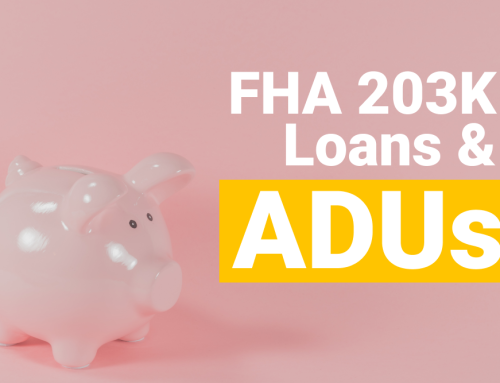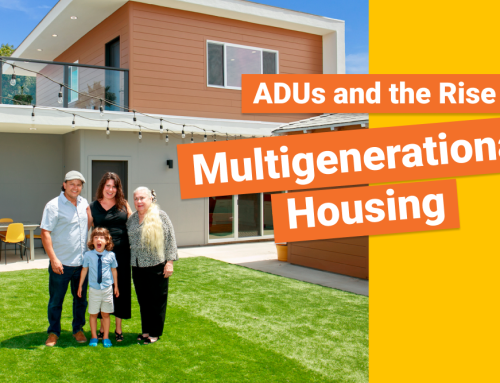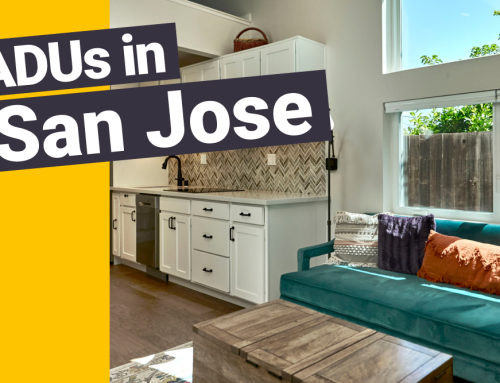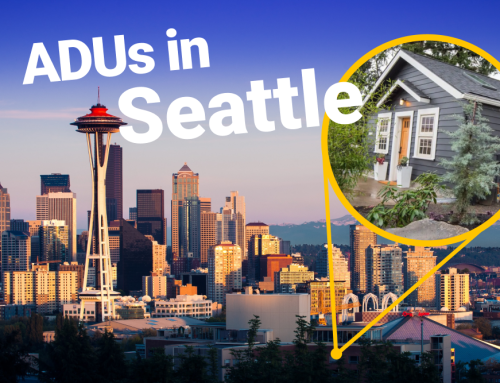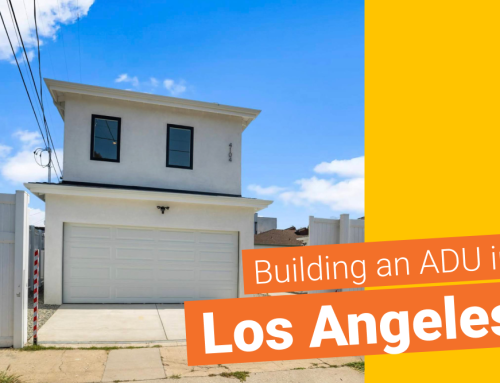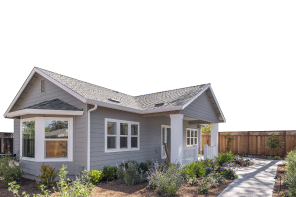Right after housing family, passive rental income is one of the top reasons people want to build an ADU on their property, and we can definitely see why. Becoming a landlord is a great way to supplement your income and create a healthy nest egg for retirement or savings. But, it’s important to remember that being landlord is still considered a job with responsibilities. There are certain expectations to adhere to to make sure your tenant(s) are comfortable in your ADU, ensuring your prolonged success.
So, what makes the difference between an “okay” landlord and a fantastic landlord with happy tenants? Here are some key things to know before you start renting out your new unit.
What do I need before I rent out my ADU?
Before renting out your ADU, you will need two crucial things: a Certificate of Occupancy and landlord insurance.
Certificate of Occupancy
Certificate of Occupancy, issued by your local building department, confirms that your accessory dwelling unit (ADU) complies with all relevant building codes and regulations and is safe for occupancy. To obtain a Certificate of Occupancy, you will need to schedule an inspection of your ADU to ensure it meets all required standards for habitability, fire safety, and structural integrity.
Once you have obtained the necessary Certificate of Occupancy and ensured compliance with local regulations, you can proceed with renting out your ADU.
Landlord Insurance
It’s also a good idea to consider obtaining landlord insurance to protect your property and assets as a rental property owner. Landlord insurance, also known as rental property insurance, is a type of insurance policy specifically designed to protect property owners who rent out their properties to tenants. Here are some key aspects of landlord insurance:
- Property Coverage: This aspect of landlord insurance typically covers the physical structure of the rental property, including the dwelling itself and any structures on the property, such as garages or sheds. It can protect against damage caused by covered perils like fire, vandalism, or natural disasters.
- Liability Coverage: Landlord insurance often includes liability coverage, which protects you financially if a tenant or visitor is injured on your rental property and holds you liable. This coverage can help pay for legal fees, medical expenses, and damages if you’re found responsible for an accident or injury.
- Loss of Rental Income: If your rental property becomes uninhabitable due to a covered loss, such as fire or storm damage, landlord insurance can provide compensation for the lost rental income during the time it takes to repair or rebuild the property. This coverage can help mitigate the financial impact of a temporary loss of rental income.
- Additional Coverages: Depending on the policy and insurer, landlord insurance may offer additional coverages or optional endorsements to address specific risks or circumstances. These could include coverage for landlord liability arising from wrongful eviction or discrimination claims, coverage for theft or vandalism by tenants, or coverage for legal expenses related to evictions.
It’s important to note that landlord insurance is distinct from homeowners insurance, which is intended for owner-occupied properties. Landlord insurance policies are tailored to the unique risks and responsibilities of rental property ownership, providing coverage for situations that may not be addressed by standard homeowners insurance.
Once you have these two things in place, you can move on to establishing the lease terms of your ADU.
What should my rental lease terms be for my ADU?
The great thing about owning your own ADU is that you can set any rules you want. All of this should be laid out in a lease so that all parties can have the rules in writing and you can avoid any conflict in the future. Here are just a few things you should think about including in your lease:
- When is rent due?
- Is this a long-term lease (1+ years) or month-to-month
- Do you allow pets? Size, type, and quantity restrictions? Is a deposit and pet rent required?
- Is smoking allowed?
- Are utilities included?
- Is parking included?
- Will the tenant have access to yard space or other outdoor areas?
- When do quiet hours begin?
This is just a sample of things you should be thinking about when drafting your lease.

While you do have free reign in placing any rules for your ADU (as long as you don’t violate any laws) you should also think about what will be on people’s checklists in your area. Living close to a college campus for example, will likely attract students looking for short-term housing. Living close to a high population area where parking can be tough, you’ll have tons of rental applications if you offer free parking.
There are plenty of lease agreement templates that you can find online, but make sure you read them carefully and edit as needed to make sure they cover everything you require.
If you’d rather go the easier route, you can always hire a property management company who can draft the lease and collect the signatures for you. We’ll go more into property managers later.
How much should I charge for rent?
There’s no one-size fits all answer to this question. The rent you can charge for your ADU will depend on city, neighborhood, ADU size, amenities, number of bedrooms and more. But, by doing some quick research you can arrive to a baseline number that makes sense for your ADU.
To start, check out similar listings in your area to get a general range of how much rent you can charge for your ADU. Sites like Zillow, Apartments.com, Craigslist, and Trulia are great places to look first. Especially look at going rates in your specific neighborhood. Rental rates can fluctuate heavily from neighborhood to neighborhood within the same city, so you want to make sure you’re not pricing your ADU too high or low for your immediate area.
Next, take your amenities into consideration. A washer and dryer in the unit is a hot commodity that people will be willing to shell out a few extra dollars for.
If you want to add these types of amenities to your unit, make sure you discuss it with your designer so that they can make the space for them in the designs. Maxable’s has a vast network of ADU designers with experience designing everything from rental ADUs to ADA compliant ADUs for those in need. Talk to a Maxable team member and get your designer match.
Also, look back at your lease and what you’re offering. Qualities like included utilities, pet friendly, and a month-to-month lease mean you can charge a little bit extra.

Take a look at where your property is located. Units closer to popular locations like a trendy shopping strip or a university call for slightly higher rent whereas ADUs in more suburban or rural areas will benefit from having lower rent.
Don’t underestimate the value of living close to the beach! This 1,000 sq. ft. two-bedroom ADU in close proximity to the beach in Los Angeles rents for a whopping $4,500 a month.
Once you’ve settled on a final price, consider knocking back a few dollars. Doing this, you’ll attract a larger pool of tenants. The tenant ultimately get approved will feel like they’re getting a great deal and will be more likely to hold on to that rental for longer. It’s a win situation for you too since you won’t have to worry about losing money replacing tenant after tenant that’s searching for a more affordable home.
With your rental rate and lease terms ironed out, you can start advertising your ADU, but it’s critical you adhere to anti-discrimination laws like the Fair Housing Law.
What is the Fair Housing Law?
“The Fair Housing Act protects people from discrimination when they are renting or buying a home, getting a mortgage, seeking housing assistance, or engaging in other housing related activities.” -Hud.gov
Maxable strongly stands by this law as it protects individuals from housing discrimination based on the following:
- Race or ancestry
- Religion
- Disability, mental or physical
- Sex, gender
- Sexual orientation
- Gender identity
- Marital/familial status
- Source of income (e.g., alimony, child support, Section 8, vouchers, etc)
When listing your ADU, also avoid using terminology like “ideal for a student” or “looking for a couple” as these can be considered discriminatory. Keep your listing simple and stick to just mentioning the great features of your ADU.
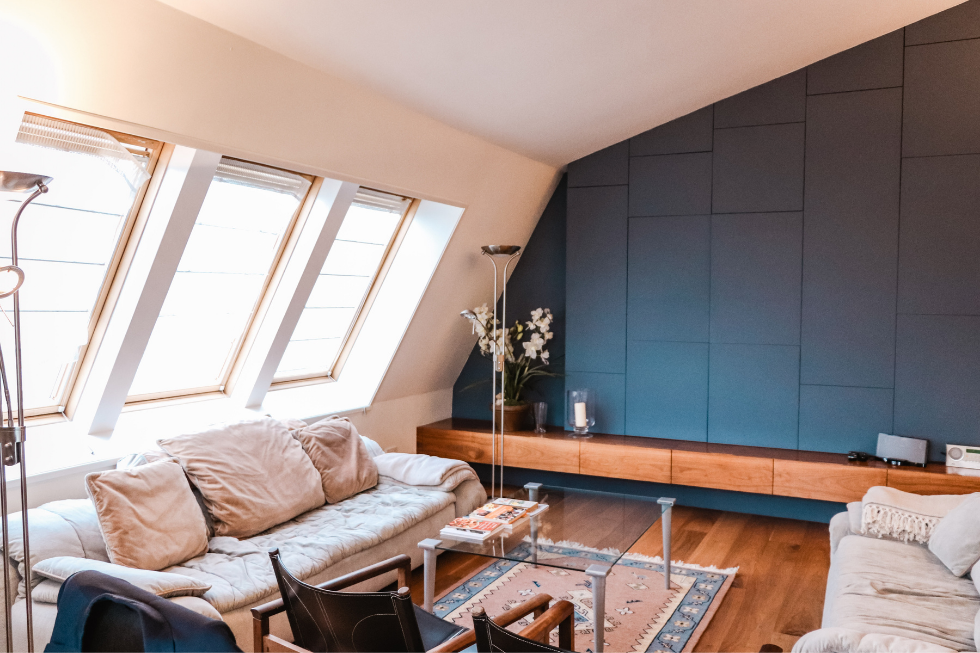
What’s expected from me as a landlord?
Being a landlord isn’t just kicking back and collecting rent checks. Keep in mind that as a landlord you have a few responsibilities.
You should be the first point of contact for repairs, complaints, upkeep, etc. Accidents are bound to happen. Having a list of reliable professionals that you can contact to fix things around the unit is a smart idea. Here’s just a quick list of professionals you should consider having on your list:
- Plumber
- Electrician
- Gardener
- Roofer
- General handyperson
- Exterminator
If you want to save an extra dollar, you can also teach yourself to do easy beginner level repairs like unclogging drains.
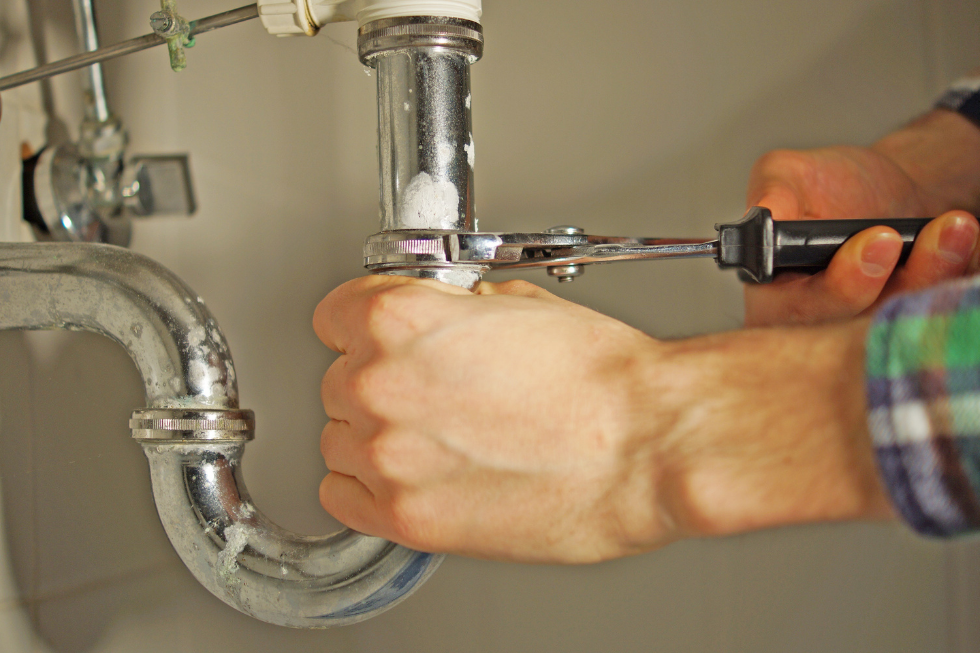
Being easy to reach and quick to act when your tenant needs something fixed is an excellent way to keep your tenant happy and ensure they’ll stick around for the long run.
But, what if you own multiple properties or work full time and can’t be on-call 24/7? That leads us to our next topic.
Do I need to hire a property management company?
If you’re mostly home or have a lot of free time, you can probably handle all of the responsibilities on your own. Otherwise, you’ll want to hire a property manager.
They’ll be in charge of preparing leases and getting them signed, repairs, advertising and finding tenants, collecting and depositing checks, and pretty much everything else.
Property management companies will typically charge 5-10% of your rental revenue for their services, so think carefully before you decide to hire them on. As we mentioned before, if you’re capable of handling the responsibilities on your own, then you’ll probably be able to skip on it.
Ready to build your new rental unit and become a landlord?
Maxable has the resources, design team, referrals, and information to get you on the right path towards completing your ADU. Defining your goals and what you want to get out of your rental is the first step towards becoming a successful landlord. Leave the headaches to us! Check your address and see what Maxable can do for your property.


